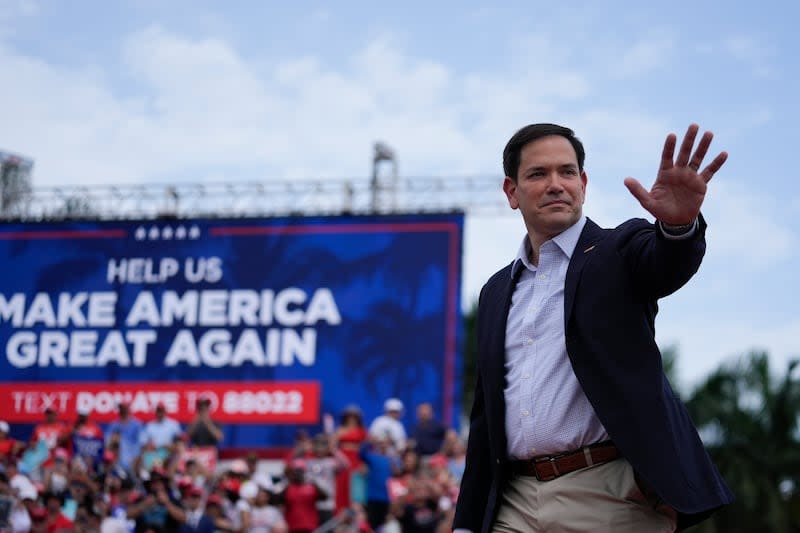Many conservative Republicans deeply opposed Trump. Now they strongly support him. What changed?
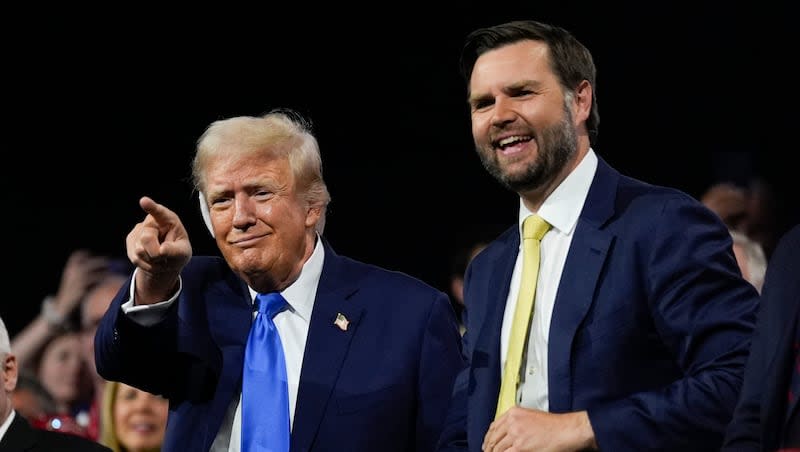
- Oops!Something went wrong.Please try again later.
- Oops!Something went wrong.Please try again later.
- Oops!Something went wrong.Please try again later.
- Oops!Something went wrong.Please try again later.
In August of 2016, JD Vance told NPR “I might have to hold my nose and vote for Hillary Clinton” before saying he’d probably vote third party “because I can’t stomach Trump” — someone he saw at the time as “noxious” and “leading the white working class to a very dark place.”
Eight years later, this same man cheered alongside Donald Trump Monday night as his vice president pick. But he’s hardly alone in experiencing a profound evolution in feelings toward the former president.
Model and rapper Amber Rose, who gave what Van Jones called the “most dangerous” RNC speech for Democrats Tuesday night, said years ago about Trump, “I really hope he’s not president” — even intimating that she would leave the country with her son if he was elected, “I’m out!”
Utah Senator Mike Lee expressed concern in a 2016 interview at prior statements from then-candidate Trump that seemed “religiously intolerant” as one reason for resisting an earlier endorsement and contributing to why Trump was at the time “wildly unpopular” in Utah. Lee voted for Evan McMullin in the 2016 presidential race.
Each of these individuals are now strong supporters of the former president, along with others who have experienced an equally dramatic sea change in affections, including Senators Marco Rubio, Tim Scott, and Lindsay Graham, Rep. Elise Stefanik, former Rep. Jason Chaffetz, Tucker Carlson, Megyn Kelly, Glenn Beck, Candace Owens, Ben Shapiro, Hugh Hewitt, and Elon Musk. The list of Trump converts is long, and includes many thoughtful citizens concerned about inflation, migrants and war spreading abroad.
Changing perspectives can clearly be healthy as new information and experience is gained. And Vance himself has said he “was wrong” about Trump in the past, explaining, “I didn’t think he was going to be a good president. He was a great president.”
Many others, of course, including former Arizona Sen. Jeff Flake, current Utah Sen. Mitt Romney, and former Wyoming Rep. Liz Cheney have experienced no such conversion — resisting a full Trump endorsement for years. Utah Gov. Spencer Cox went on CNN last week and reaffirmed his support for the Republican Party, but demurred at the possibility of voting for Trump: “I’m not going to vote for either presidential candidate this year,” Cox said.
What differentiates these groups of conservatives? And more specifically, what has contributed to this internal evolution among so many conservative leaders, commentators and citizens who have been embracing Trump’s new candidacy for the White House?
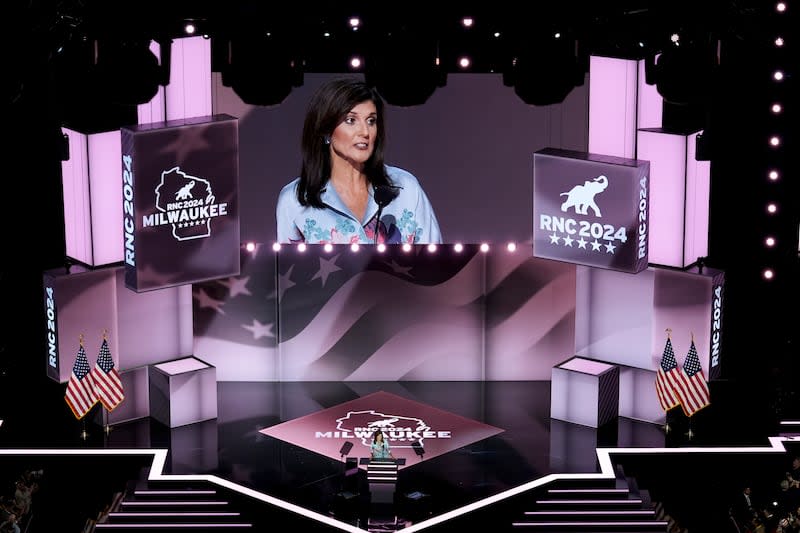
Some argue these changes have occurred largely out of political ambition. “That’s where the party is going,” said University of South Florida emeritus political science professor Susan MacManus. “And when you need the votes that’s where you go.”
While shifting political realities are obvious, there is more to the story, since thoughtful, good-hearted Americans continue to hold honest disagreements about many questions facing the nation. The Deseret News identified patterns in statements from conservative leaders and other voices newly supporting former President Trump to better understand what’s driving that evolution.
1. Belief that Trump is good at getting practical results America needs
“They like his policies” is the most common explanation among newfound Trump supporters — underscoring, most frequently, the former president’s work to secure the U.S. border and nominate conservative justices to the Supreme Court.
In that same 2016 interview, Mike Lee spoke of wanting “some assurances” on where then-candidate Trump was “going to stand his ground” and whether he would be “a vigorous defender for the U.S. Constitution.”
The senior senator from Utah has clearly liked what he’s seen, “wholeheartedly” endorsing the president’s current run for office early this year because, in his words, Trump “kept promises that he’s made as he’s campaigned in the past. We know what kind of president he will be.”
Rubio likewise writes that steps Trump “took then — and plans to take again — were good for our nation and our people.” Many conservative leaders and citizens alike point to mounting economic challenges under President Joe Biden and feel confident that pivots under a new Trump administration would substantially right the ship.
“If you want the prices to go down, if you want inflation to go down, if you want gas prices to go down, if you want to feel protected in your neighborhood with your children, if you’re American and you’re here and you’re born here, Donald Trump is for you,” Rose said at Monday’s RNC Convention.
While policy issues partly explain these differences among conservatives, there are other considerations influencing the public and his supporters leading the GOP.
2. Convinced Trump’s brash style is needed now
While they typically don’t condone everything Trump has said in the past, supporters often say they’ve come to see the former president’s overall style as helpful — justifying the well-known brashness and personal attacks as serving a purpose in America’s hostile political environment.
“It doesn’t bother me,” said Iowa voter Lori Carpenter, with Marsha Crouthamel, agreeing, “It doesn’t bother me either because his policies are strong.”
While some enjoy the president’s style, other conservatives try to overlook it. “We’re Christians, and we can look past that,” Carpenter added. “We see the good that he did our country when he was in.”
Some Republican leaders (not all) have adopted similar styles and rhetoric, with Rubio recently calling progressive Democrats “deranged” and President Biden “senile, weak, and dishonest.”
3. Persuaded of the possibility of election fraud
Some former Trump critics have said the possibility of election fraud is worthy of investigation. Vance went further, repeatedly telling supporters (and reporters) he would not have certified the 2020 election on Jan. 6. Vance is now the choice for vice president; former Vice President Mike Pence said he would not endorse Trump and is not at the Republican convention.
Sen. Tim Scott declined to say in March whether he would have certified the 2020 election as VP — and dodged a few months later another question about whether he would “commit to accepting the election results of 2024?” In a spring “Meet the Press” interview on NBC, Rubio likewise repeatedly refused to commit to accepting the 2024 election results.
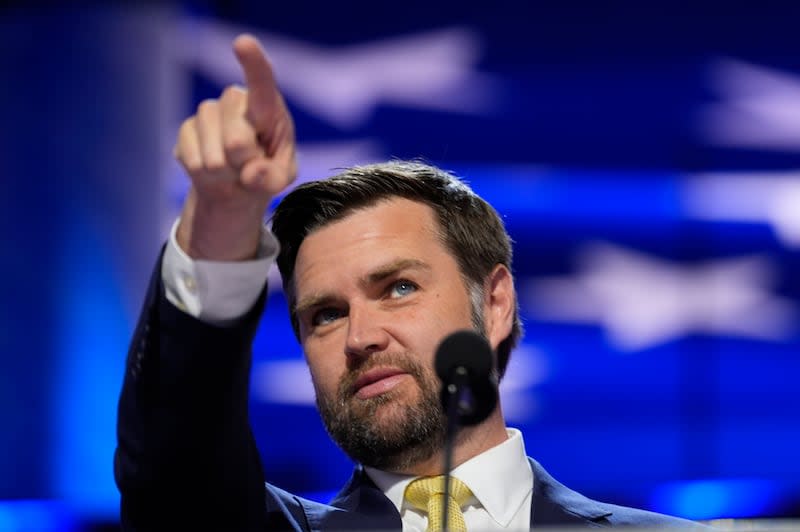
4. Agreement that Trump’s hard-line response to the immigration crisis is justified
Rubio was an early leader in 2012 bipartisan efforts on comprehensive immigration reform that would have created a path to citizenship for millions of people in the country illegally. But like many conservative leaders, his attitude has changed after witnessing rising numbers of migrants entering the country illegally. Now, he and other Republicans join Trump and conservative pundits in declaring this an “invasion of our country.”
Like other conservatives, Rubio also supports the former president’s plan in a second term to use the military to institute a mass deportation program for undocumented immigrants — while joining Lee and a critical mass of other Republican legislators turning against a bipartisan border security bill.
Rubio’s shift is emblematic of a transformation in how some conservatives now see and speak about immigration — which is another commonality among those embracing Trump’s current campaign for office.
5. A desire to put “America First’
Trump’s stance on foreign policy is now embraced by some conservatives who formerly worried about becoming overly isolationist. Senator Lee said in his endorsement that Trump’s candidacy was a chance for “putting America first over America last.” Vance himself has been one of the most fiercely opposed to additional aid to Ukraine, with many this week pointing to a passing remark on a podcast where he said, “I gotta be honest with you, I don’t really care what happens to Ukraine one way or another.”
Vance instead called for more attention to problems within America’s own borders, including fentanyl-related deaths. Days later, the senator from Ohio issued a lengthy clarification calling Russia’s assault “unquestionably a tragedy” — before shifting critical scrutiny to U.S. actions before, during and after the conflict erupted. Central to his contention was an insistence that other leaders in the U.S. secretly wanted more U.S. involvement in military interventions overseas.
Vance is emblematic of a shift by some toward a more suspicious narrative about the Ukrainian conflict, in line with repeated contentions by Tucker Carlson that the country under attack isn’t the noble victim Americans have been led to believe. Comments like that prompted former Speaker of the House Mitch McConnell to blame Carlson for fueling anti-Ukraine sentiment amongst Republicans.
Sens. Lee and Rubio both voted against providing additional Ukraine aid for different reasons. These positions contrast meaningfully with Cox and Utah’s other Republican legislative leadership, as well as its business and community leadership who welcomed Volodymyr Zelenskyy to Utah last week to address the National Governor’s Association. Utah was the first state to send a trade delegation to Ukraine, led by Senate President Stuart Adams during the war.
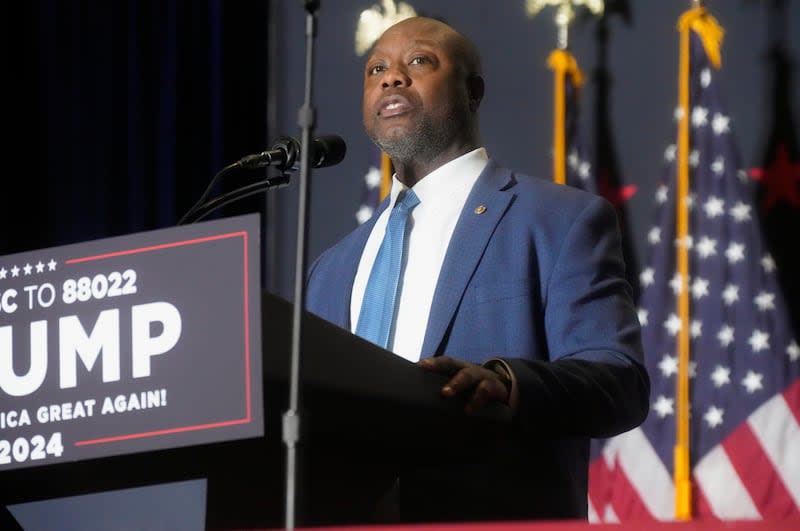
6. Convinced we must be fighters in a culture war
Many of these leaders and citizens have embraced Trump’s language taking for granted that conservatives are victims (and fighters) in a zero-sum culture war with dire consequences at stake. This includes adopting generalized suspicion toward what Rubio calls the American “ruling class,” who he writes “will stop at nothing to destroy anyone they view as a threat to their power and wealth” — suggesting this same “ruling class” seems to be “actually trying to destroy America.”
After the former President was convicted in a New York court of dozens of felonies, Sens. Lee and Rubio signed onto a statement with other GOP leaders vowing to oppose all Democratic legislation and Biden nominees, saying, “We are unwilling to aid and abet this White House in its project to tear this country apart.”
What about the chance to understand each other across our many differences? “Not long ago, we still lived in an America,” Rubio writes, where “people who disagreed politically did not consider those with different views as inherently evil.”
“But sadly, that is not the America we are living in right now.”
The weakest cheer at Nikki Haley’s RNC talk on Tuesday came when she said, “In this moment, we have a chance to put aside our differences and focus on what unites us and strengthens our country.”
This darker turn contrasts sharply with other previous efforts to convince Republican voters to embrace a hope-filled view of America’s future by Sen. Scott (who now strongly endorses the former president).
Like many other conservative leaders, Rubio has also argued that lawsuits against Trump were no more than a “weaponization of government against political opponents” while asserting that political elites on both sides were actively working to “shut out” people from the political process, “even if it means tearing the country apart.”
7. Sure that Trump will do great good for the nation
All this adds up to a calculus where the conservative leaders who embraced Trump and voters see the former president as ushering in unquestionable good were he to retake the White House. Rubio even writes that he may even be “our last chance to save this country.”
If you’re among those who struggle to see how anyone could reach this conclusion — yet you want to have more empathy for friends and family who have — be sure to check out the excellent commentary by Brett Stephens in the New York Times, “The Case for Trump … by Someone Who Wants Him to Lose.”
“The left told me to hate Trump and even worse, to hate the other side — the people who support him,” said Amber Rose on Monday. “When you cut through the lies, you realize the truth: American families were better when Donald Trump was president. We were safer, wealthier and stronger.”
After describing how her “whole world revolves around” providing for her children as a mother, Rose also added further explanation on a podcast, “For me, Donald Trump is the epitome of an alpha male. He’s there to protect, provide, make sure the citizens of the U.S. are in a good economy, protecting us.. … I feel safer with him in office.”
“He doesn’t care if you’re Black, White, gay. He does not care,” she added. “He’s for the American people period. He’s for your children. He’s for women. He’s for all of us.”
